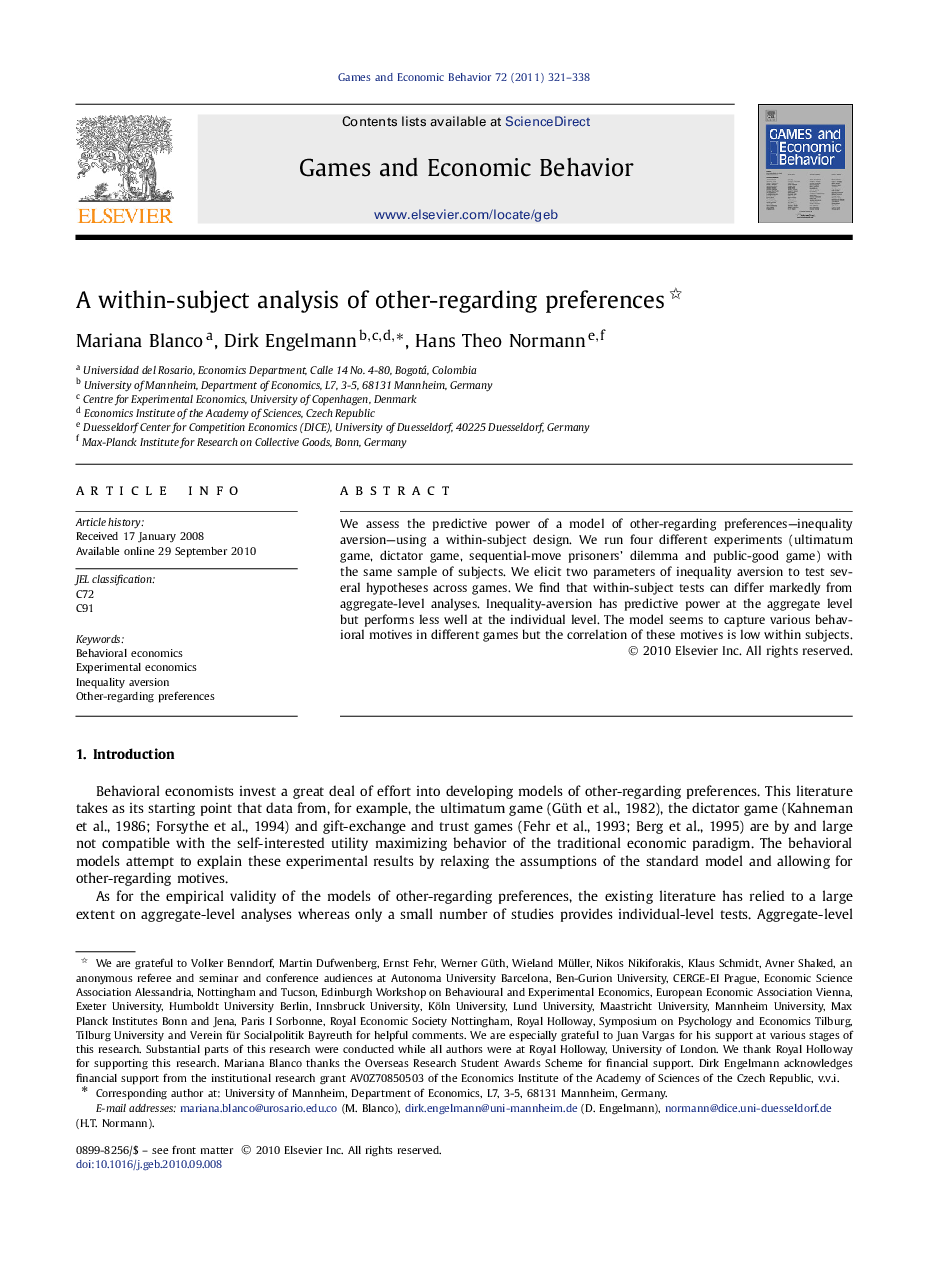| Article ID | Journal | Published Year | Pages | File Type |
|---|---|---|---|---|
| 5072365 | Games and Economic Behavior | 2011 | 18 Pages |
Abstract
We assess the predictive power of a model of other-regarding preferences-inequality aversion-using a within-subject design. We run four different experiments (ultimatum game, dictator game, sequential-move prisonersʼ dilemma and public-good game) with the same sample of subjects. We elicit two parameters of inequality aversion to test several hypotheses across games. We find that within-subject tests can differ markedly from aggregate-level analyses. Inequality-aversion has predictive power at the aggregate level but performs less well at the individual level. The model seems to capture various behavioral motives in different games but the correlation of these motives is low within subjects.
Keywords
Related Topics
Social Sciences and Humanities
Economics, Econometrics and Finance
Economics and Econometrics
Authors
Mariana Blanco, Dirk Engelmann, Hans Theo Normann,
